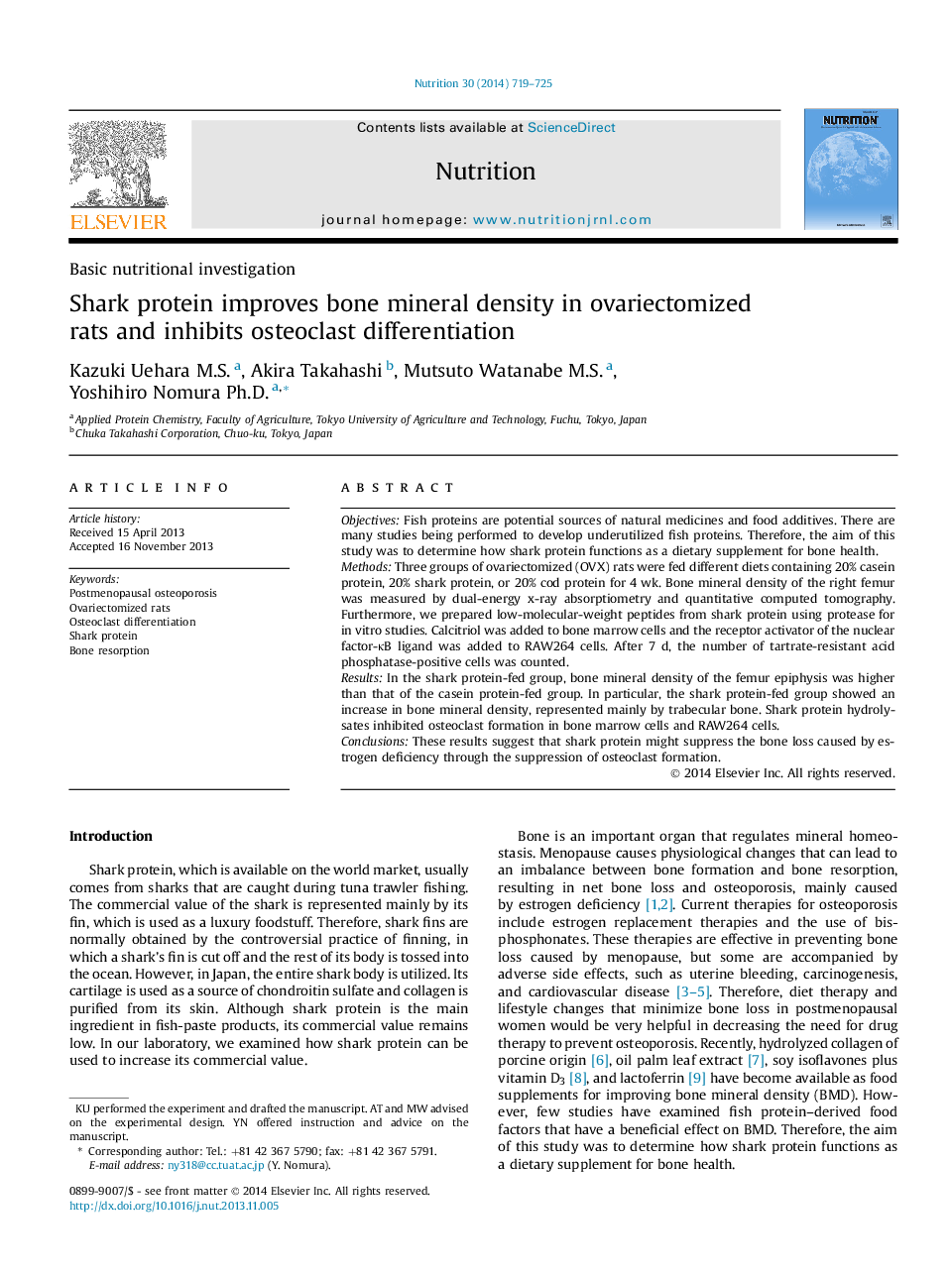| Article ID | Journal | Published Year | Pages | File Type |
|---|---|---|---|---|
| 6089789 | Nutrition | 2014 | 7 Pages |
ObjectivesFish proteins are potential sources of natural medicines and food additives. There are many studies being performed to develop underutilized fish proteins. Therefore, the aim of this study was to determine how shark protein functions as a dietary supplement for bone health.MethodsThree groups of ovariectomized (OVX) rats were fed different diets containing 20% casein protein, 20% shark protein, or 20% cod protein for 4 wk. Bone mineral density of the right femur was measured by dual-energy x-ray absorptiometry and quantitative computed tomography. Furthermore, we prepared low-molecular-weight peptides from shark protein using protease for in vitro studies. Calcitriol was added to bone marrow cells and the receptor activator of the nuclear factor-κB ligand was added to RAW264 cells. After 7 d, the number of tartrate-resistant acid phosphatase-positive cells was counted.ResultsIn the shark protein-fed group, bone mineral density of the femur epiphysis was higher than that of the casein protein-fed group. In particular, the shark protein-fed group showed an increase in bone mineral density, represented mainly by trabecular bone. Shark protein hydrolysates inhibited osteoclast formation in bone marrow cells and RAW264 cells.ConclusionsThese results suggest that shark protein might suppress the bone loss caused by estrogen deficiency through the suppression of osteoclast formation.
